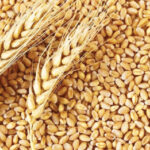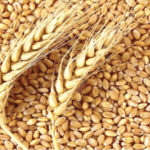- …As planting season kicks-off
Between now and mid-December, wheat farmers in the country will make use of the planting window to commence production.
But some farmers are concerned that if they miss the period due to lack of access to inputs, productivity will be hampered, and further widen the demand gap of over 4.1 million metric tons of the grain.
Our correspondents across the states spoke with farmers, preparing for the field, on many issues affecting productivity.
Our reporter in Katsina reported that despite the high cost of fertiliser, farmers are determined to start early in order to balance the deficit they incurred in the last wet season farming.
A farmer, Malam Murtala Mairuwa, lamented that the government’s agricultural interventions were always late and sometimes only benefited non-actors in the irrigation sector.
“Government, through CBN, did well in supporting wheat production last year with improved seeds and other inputs; but the problem is that such intervention usually comes late.
“Wheat is supposed to be planted no later than November to get the desired yield, but last year the inputs were distributed in December.
“Another problem is that there is no formidable gatekeeping to prevent non-farmers from hijacking the interventions,” Mairuwa said.
He added that most of them are now planting the second generation of the seeds distributed last year, as government has yet to distribute new ones this year.
In Bakori, where most of the wheat farmers depend on the Jare River to water their farms, some of the farmers have already planted the crop.
Abdurrahman Kabir, a farmer, said this year they were lucky with ample rainfall, which filled the rivers.
“Last year, we suffered from lack of adequate water and the absence of a viable mechanism to access the capacity of the rivers for irrigation farming.
“Almost every farm owner along the riverside sees it as his right to till the soil and plant whatever he likes without considering the capacity of the river.
“This year we have enough water for wheat production, especially for those of us that started early.”
Kabir added that farmers this year may not find it easy considering the high cost of inputs and petrol used in powering their water pump machines.
Our reporter observed that the market price of wheat was the morale booster for the farmers, as a 100kg bag was sold for N48,500 at Bakori market.
The merchants interviewed said in some urban markets, the price might be more than N50,000.
In Kano, our correspondent gathered that wheat farmers have since moved to farms, but most of them are yet to access improved seeds as well as other interventions meant to assist wheat farming in the country.
Meanwhile, findings by Daily Trust revealed that for years, some wheat farmers have been depending on the goodwill of some seed producing companies and flour companies for their seeds.
Some of the farmers said since the Lake Chad Research Institute (LCRI) stopped distributing improved seeds, they have been left to search for better seeds themselves.
According to a Kano-based wheat farmer, Alhaji Surajo Bello, despite the global issue associated with wheat, farmers in Kano State have not accessed the federal government’s Anchor Borrower intervention this year.
“When wheat was included among the crops to enjoy the federal government’s Anchor Borrower under the Central Bank of Nigeria (CBN), LCRI stopped distribution of improved variety seeds to farmers.
“It is unfortunate that as an institution with a mandate on wheat, LCRI has slowly become non-active in wheat production in Nigeria.
“Farmers are left to source seeds for themselves, and that has been the major reason behind the poor yield being experienced lately,” he said.
Another wheat farmer, Alhaji Musa Mu’azu Garun Babba, said for years, wheat farmers have been left at the mercy of seed production companies that usually enter agreements with individual farmers to multiply seeds for them.
He explained that though they’re not sure if the Northern Flour Mill will distribute seeds to wheat farmers this year, the company, he said, has been giving farmers seeds every planting period.
“We were told that a seed company from Zaria has entered into an agreement with some wheat farmers under the company’s seed multiplication progamme and seeds were given to the farmers for multiplication.
“However, the gesture wasn’t extended to the greater majority of wheat farmers. To make it worse this season, we were told that there will not be anything from the Anchor Borrower scheme,” he said.
Similarly, Malam Yusuf Zubairu Bagwai, revealed to Daily Trust that the absence of the Anchor Borrower on wheat this year was a result of a change in CBN’s recovery policies for the Anchor Borrower programme.
According to him, the initial policy stipulated continuation after 50% recovery success, adding that Kano wheat farmers recorded over 60% recovery success but the new CBN recovery policy insists on 100% recovery.
Attempt to reach the Wheat Farmers Association of Nigeria, Kano branch, was unsuccessful as it did not respond to calls from our reporter.
In Gombe, our correspondent said over 2,700 hectares of land have been prepared for cultivation in the state for this year’s cropping season.
In an interview with Daily Trust, the secretary of the state chapter of the Wheat Farmers Association of Nigeria (WFAN), Shamsudeen Ahmed, said over 27,000 wheat farmers have already prepared their farmlands for cultivation.
He said the association has, through the Central Bank of Nigeria (CBN), procured farm input and implements like fertiliser, improved seedlings, herbicides and insecticides, water pump and spray machines for distribution to wheat farmers.
He said the items will soon be distributed to the farmers, to enable them to move to their respective farms early.
Ahmed added that during the last cropping season, over 2,464 hectares of farmland were cultivated in the state, which enabled them to recover the loan the WFAN obtained through the CBN’s Anchor Borrower Programme.
According to him, because of the ongoing crisis in Ukraine, which is one of the largest producers of wheat in the world, many farmers have indicated interest in planting more wheat.
The WFAN secretary revealed that they are now using an improved seedling, Norman Borlaug, which gives farmers almost double the quantity of wheat during harvest.
He, however, lamented that the current fuel scarcity will affect the farmers in running their water pump machines on their farms.
The WFAN scribe added that the late arrival of the farm implements will also have a negative impact on wheat farming. “This is the middle of November, and we are yet to plant.
“We are supposed to have already planted the seeds by this time for us to get a good yield that will meet the needs of the Nigerian markets and fill the gap brought about by the war in Ukraine,” he said.
Ahmed highlighted bureaucratic bottlenecks as some of the factors affecting early access and distribution of farm inputs for the wheat farming season.
Vincent A. Yusuf (Abuja), Mahmoud Idris (Katsina), Ibrahim Musa Giginyu (Kano) & Haruna Gimba Yaya (Gombe)

 Join Daily Trust WhatsApp Community For Quick Access To News and Happenings Around You.
Join Daily Trust WhatsApp Community For Quick Access To News and Happenings Around You.



